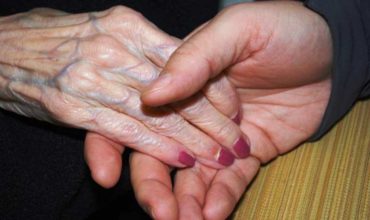Home Health Medical Providers
Home Health Care providers deliver a wide variety of health care and supportive services, ranging from professional nursing and HCA care to physical, occupational, respiratory, and speech therapies. They also may provide social work and nutritional care and laboratory, dental, optical, pharmacy, podiatry, x-ray, and medical equipment and supply services. Services for the treatment of medical conditions usually are prescribed by an individual’s physician. Supportive services, however, do not require a physician’s orders. An individual may receive a single type of care or a combination of services, depending on the complexity of his or her needs. Home care services can be provided by the following professionals, paraprofessionals, and volunteers.
Physicians visit patients in their homes to diagnose and treat illnesses just as they do in hospitals and private offices. They also work with home care providers to determine which services are needed by patients, which specialists are most suitable to render these services, and how often these services need to be provided. With this information, physicians prescribe and oversee patient plans of care. Under Medicare, physicians and home health agency personnel review these plans of care as often as required by the severity of patient medical conditions at least once every 62 days. The interdisciplinary team reviews the care plans for hospice patients and their families at least once a month, or as frequently as patient conditions and/or family circumstances require.
Registered nurses (RNs) and licensed practical nurses (LPNs) provide skilled services that cannot be performed safely and effectively by nonprofessional personnel. Some of these services include injections and intravenous therapy, wound care, education on disease treatment and prevention, and patient assessments. RNs may also provide case management services. RNs have received two or more years of specialized education and are licensed to practice by the state. LPNs have one year of specialized training and are licensed to work under the supervision of registered nurses. The intricacy of a patient’s medical condition and required course of treatment determine whether care should be provided by an RN or can be provided by an LPN.
Physical therapists (PTs) work to restore the mobility and strength of patients who are limited or disabled by physical injuries through the use of exercise, massage, and other methods. PTs often alleviate pain and restore injured muscles with specialized equipment. They also teach patients and caregivers special techniques for walking and transfer.
Social workers evaluate the social and emotional factors affecting ill and disabled individuals and provide counseling. They also help patients and their family members identify available community resources. Social workers often serve as case managers when patients’ conditions are so complex that professionals need to assess medical and supportive needs and coordinate a variety of services.
Speech language pathologists work to develop and restore the speech of individuals with communication disorders; usually these disorders are the result of traumas such as surgery or stroke. Speech therapists also help retrain patients in breathing, swallowing, and muscle control.
Occupational therapists (OTs) help individuals who have physical, developmental, social, or emotional problems that prevent them from performing the general activities of daily living (ADLs). OTs instruct patients on using specialized rehabilitation techniques and equipment to improve their function in tasks such as eating, bathing, dressing, and basic household routines.
Dietitians provide counseling services to individuals who need professional dietary assessment and guidance to properly manage an illness or disability.
Home Care Non- Medical Providers
HCAs/home health aides assist patients with ADLs such as getting in and out of bed, walking, bathing, toileting, and dressing. Some aides have received special training and are qualified to provide more complex services under the supervision of a nursing professional.
Homemaker and chore workers perform light household duties such as laundry, meal preparation, general housekeeping, and shopping. Their services are directed at maintaining patient households rather than providing hands-on assistance with personal care.
Companions provide companionship and comfort to individuals who, for medical and/or safety reasons, may not be left at home alone. Some companions may assist clients with household tasks, but most are limited to providing sitter services.
Related items
How to Take Care of Yourself While Taking Care of a Loved One?
Remember: your needs are important too! Caring for a loved one is an emotional task and ca
With What Things Should We Have Outside Help For Eldercare?
THIRD IN A SERIES: EASY ANSWERS TO TOUGH QUESTIONS ABOUT ELDERCARE
You can read the first






